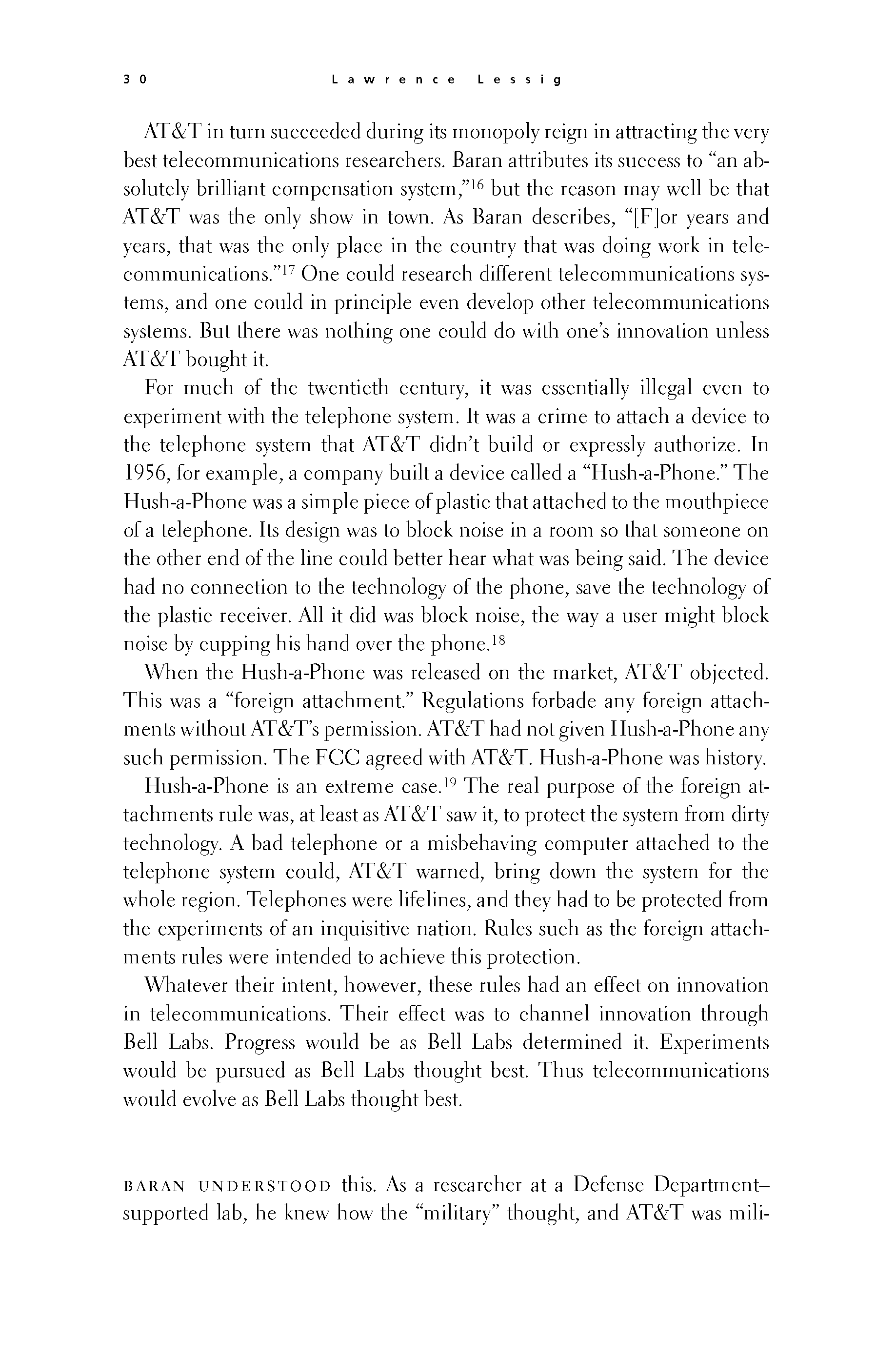 p029 _
-chap- _
toc-1 _
p030w _
toc-2 _
+chap+ _
p031
p029 _
-chap- _
toc-1 _
p030w _
toc-2 _
+chap+ _
p031
AT&T in turn succeeded during its monopoly reign in attracting the very
best telecommunications researchers. Baran attributes its success to "an ab-
solutely brilliant compensation system,"[3-16] but the reason may well be that
AT&T was the only show in town. As Baran describes, "[F]or years and
years, that was the only place in the country that was doing work in tele-
communications."[3-17] One could research different telecommunications sys-
tems, and one could in principle even develop other telecommunications
systems. But there was nothing one could do with one's innovation unless
AT&T bought it.
For much of the twentieth century, it was essentially illegal even to
experiment with the telephone system. It was a crime to attach a device to
the telephone system that AT&T didn't build or expressly authorize. In
1956, for example, a company built a device called a "Hush-a-Phone." The
Hush-a-Phone was a simple piece of plastic that attached to the mouthpiece
of a telephone. Its design was to block noise in a room so that someone on
the other end of the line could better hear what was being said. The device
had no connection to the technology of the phone, save the technology of
the plastic receiver. All it did was block noise, the way a user might block
noise by cupping his hand over the phone.[3-18]
When the Hush-a-Phone was released on the market, AT&T objected.
This was a "foreign attachment." Regulations forbade any foreign attach-
ments without AT&T's permission. AT&T had not given Hush-a-Phone any
such permission. The FCC agreed with AT&T. Hush-a-Phone was history.
Hush-a-Phone is an extreme case.[3-19] The real purpose of the foreign at-
tachments rule was, at least as AT&T saw it, to protect the system from dirty
technology. A bad telephone or a misbehaving computer attached to the
telephone system could, AT&T warned, bring down the system for the
whole region. Telephones were lifelines, and they had to be protected from
the experiments of an inquisitive nation. Rules such as the foreign attach-
ments rules were intended to achieve this protection.
Whatever their intent, however, these rules had an effect on innovation
in telecommunications. Their effect was to channel innovation through
Bell Labs. Progress would be as Bell Labs determined it. Experiments
would be pursued as Bell Labs thought best. Thus telecommunications
would evolve as Bell Labs thought best.
///\\\
Baran understood this. As a researcher at a Defense Department-
supported lab, he knew how the "military" thought, and AT&T was mili-
[[30]]
p029 _
-chap- _
toc-1 _
p030w _
toc-2 _
+chap+ _
p031